Tell strong stories. That’s what every writer longs to do. What are strong stories anyway? To conquer an audience and make it your own you must tell a story that moves them. A story that moves them emotionally. Emotional Power is the impact your story must have.
The key to an emotionally moving storytelling is Character. The success of your story hangs on the strength of the main character you create and the way you employ that character as a storyteller. If your goal is to Tell Strong Stories your main character must move the narrative forward emotionally.
Why is your main character so important? Because your protagonist’s story is what connects you with the reader. You draw the reader in and make her care. That’s how you hook a reader. Mastering the art of the narrative hook is essential to writing a successful story.
You set that hook by creating a story in which the reader cannot help but become emotionally involved. First and foremost you do this by creating a character with whom the reader cannot help but become emotionally involved.
Which means that the reader must care about what happens to your character. The reader must begin to behave as if the Protagonist of your story were a real-life person they know personally. Your character’s defeats are the reader’s defeats. Your character’s triumphs are the reader’s triumphs.
When you make your readers feel this connection you have them hooked. And they will stay hooked from beginning to end.
 [For example, I was hooked by both Rick and Ilsa in the film Casablanca and wanted both of them to triumph. The conclusion turned out to be more complicated than that, which hooked me deeper still. Those screenwriters knew how to Tell Strong Stories.]
[For example, I was hooked by both Rick and Ilsa in the film Casablanca and wanted both of them to triumph. The conclusion turned out to be more complicated than that, which hooked me deeper still. Those screenwriters knew how to Tell Strong Stories.]
Here’s how to begin creating characters as real as Rick and Ilsa.
#1. First, the character must hook you. You as author must be as emotionally involved with your character as you want the reader to be.
#2. Which requires that you as author must know your character intimately. You must know your characters – especially your main character heroine or hero – from the Inside Out. Which means you must understand as deeply as you possibly can what it’s like to be your protagonist.
Why do you need to know so much about your protagonist? In practical terms, you must know enough to keep your readers reading. You need to know a lot about a character to make her sufficiently complex to carry the weight of your story from the beginning to the end of a book.
You must know enough about this character to bring him to life on the page and make the reader care about him.
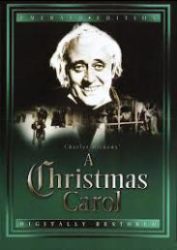 [For example, Charles Dickens brought Ebenezer Scrooge to life on the page in A Christmas Carol, and made us care what happened to him as well. Dickens knew Scrooge from the Inside Out.]
[For example, Charles Dickens brought Ebenezer Scrooge to life on the page in A Christmas Carol, and made us care what happened to him as well. Dickens knew Scrooge from the Inside Out.]
Here’s an exercise for getting to know your character from the Inside Out. Project yourself into your main character. Become your main character in your imagination. Then ask yourself the following five questions about that character.
#1. What does my main character want in this story? Is this desire significant enough to make a reader also want this thing for my character? Is this desire significant enough to make a reader want it for my character all the way through the length of an entire book? Or at some point does this desire pale into “Who cares?” territory for the reader?
#2. How much does my main character want this thing? Is this the most crucial need my character has ever experienced? Have I effectively communicated my character’s sense of urgency? How in specific scenes, action and dialogue can I turn up the story heat on the intensity of my main character’s desire?
#3. Why does my main character want this thing? Are her reasons – her motivations – admirable? Are these motivations logical in this story situation? Are her motivations believable to the extent that a reader will accept them as legitimate enough to motivate an intelligent, independent protagonist throughout the entire length of my story? Will a reader not only believe these motives but also adopt them on behalf of my character and root for her to achieve her desires?
#4. What does my main character not want? Is my character running away from something? If so, what is it and why is he on the run from it? Is my character avoiding something? If so, what is he avoiding and why? What is my character afraid of? Why is my character afraid of this thing?
 [Here’s another way to Tell Strong Stories in terms of drama, intensity and power. Make sure every character fears something. Especially your main character. For example, what does Scarlett O’Hara fear in Margaret Mitchell’s Gone with the Wind?]
[Here’s another way to Tell Strong Stories in terms of drama, intensity and power. Make sure every character fears something. Especially your main character. For example, what does Scarlett O’Hara fear in Margaret Mitchell’s Gone with the Wind?]
#5. What’s at stake for my main character in this story situation? What will happen if she fails to achieve what she wants or needs? Are those consequences dreadful enough to make a reader dread them as well? Who in my story besides my main character could also be adversely affected? How in specific scenes, action and dialogue can I intensify these stakes by making the potential consequences more devastating, pervasive and far-reaching? In order to Tell Strong Stories you must raise the stakes as high as your story will allow.
Brainstorm every possible response to each of these questions. Always push yourself beyond the first, most obvious possibility toward less expected, more original ones. The farther reaches of our imaginations are the place from which we Tell Strong Stories.
Alice Orr – https://www.aliceorrbooks.com
– R|R –
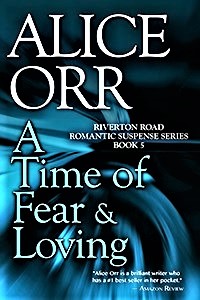 Amanda Miller Bryce is the main character of the strong story that is Alice’s new novel A Time of Fear & Loving – Riverton Road Romantic Suspense Book 5. Meet Amanda HERE. You can find all of Alice’s books HERE.
Amanda Miller Bryce is the main character of the strong story that is Alice’s new novel A Time of Fear & Loving – Riverton Road Romantic Suspense Book 5. Meet Amanda HERE. You can find all of Alice’s books HERE.
What readers are saying about A Time of Fear & Loving. “I never want an Alice Orr book to end.” “Alice Orr is the queen of ramped-up stakes and page-turning suspense.” “Warning. Don’t read before bed. You won’t want to sleep.” “The tension in this novel is through the roof.”
“A budding romance that sizzles in the background until it ignites with passion.”
“The best one yet, Alice!”
http://facebook.com/aliceorrwriter/
http://twitter.com/AliceOrrBooks/
http://goodreads.com/aliceorr/
http://pinterest.com/aliceorrwriter/
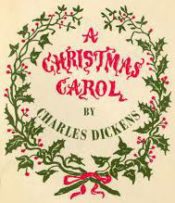 Scrooged Stories are the writer’s ideal holiday gift, because they come with Scrooged storytelling and the Bountiful Writing that can result from opening this particular package all the way into your creative heart.
Scrooged Stories are the writer’s ideal holiday gift, because they come with Scrooged storytelling and the Bountiful Writing that can result from opening this particular package all the way into your creative heart. Our prototype, Ebenezer’s personal human depravity has to do with compassion. He doesn’t have any, not any we can readily discern from his perpetually scowling face and stingy, heartless behavior. Worse still, he is pleased to be exactly what he is and regards the caring world as, in a word, a humbug. Redeeming this dude won’t be easy. But then, that’s what makes Scrooged Stories so reader appealing. The more irredeemable the character is, the more dramatic the story will be. And drama, along with power and intensity, is the wellspring of that pop chart pay dirt I mentioned.
Our prototype, Ebenezer’s personal human depravity has to do with compassion. He doesn’t have any, not any we can readily discern from his perpetually scowling face and stingy, heartless behavior. Worse still, he is pleased to be exactly what he is and regards the caring world as, in a word, a humbug. Redeeming this dude won’t be easy. But then, that’s what makes Scrooged Stories so reader appealing. The more irredeemable the character is, the more dramatic the story will be. And drama, along with power and intensity, is the wellspring of that pop chart pay dirt I mentioned.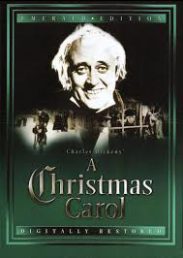 Once again, Scrooged Stories don’t let us down. We are showered with a bounty of glorious gifts, the most bounteous of which may be the key insight into what make this story as popular as it is. The dramatic contrast of its final act from its initial one. Joy, giddiness, laughter so unrepressed we might think it would break Ebenezer’s stony face. And it does. Which brings us to the most satisfying payoff of all. Magnanimous deeds. Ebenezer scatters goodness, light, and even life in every direction.
Once again, Scrooged Stories don’t let us down. We are showered with a bounty of glorious gifts, the most bounteous of which may be the key insight into what make this story as popular as it is. The dramatic contrast of its final act from its initial one. Joy, giddiness, laughter so unrepressed we might think it would break Ebenezer’s stony face. And it does. Which brings us to the most satisfying payoff of all. Magnanimous deeds. Ebenezer scatters goodness, light, and even life in every direction.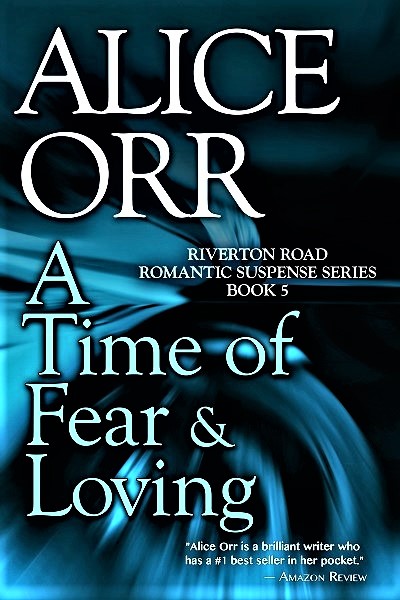 Alice’s new novel, including a Scrooge of her own, is A Time of Fear & Loving – Riverton Road Romantic Suspense Book 5. Available
Alice’s new novel, including a Scrooge of her own, is A Time of Fear & Loving – Riverton Road Romantic Suspense Book 5. Available 
 Except maybe
Except maybe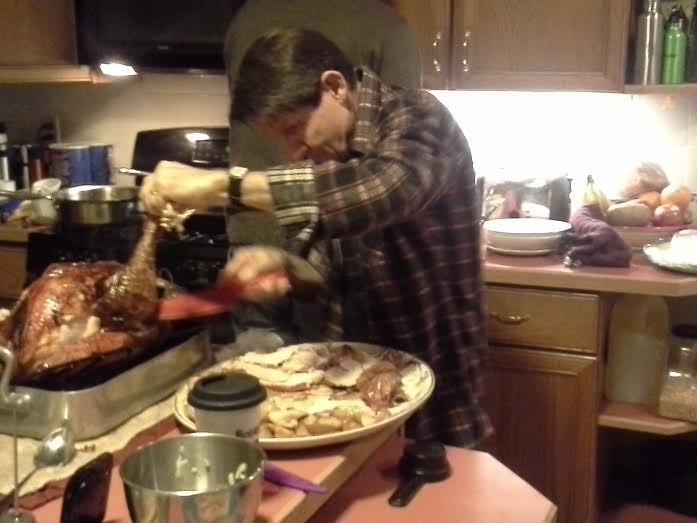 P.S. The guy in the photo is Jonathan, and I have no idea why he’s peeking into the turkey’s you-know-what. Should I worry about that? Alice Orr –
P.S. The guy in the photo is Jonathan, and I have no idea why he’s peeking into the turkey’s you-know-what. Should I worry about that? Alice Orr –